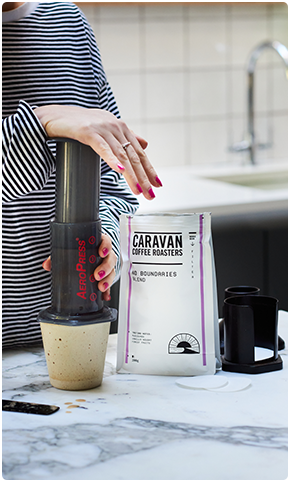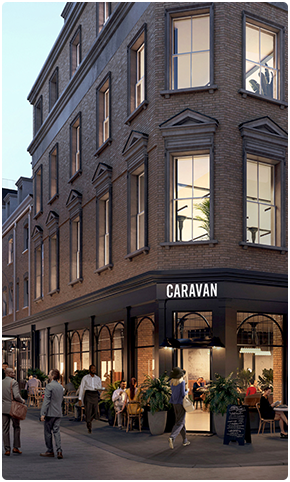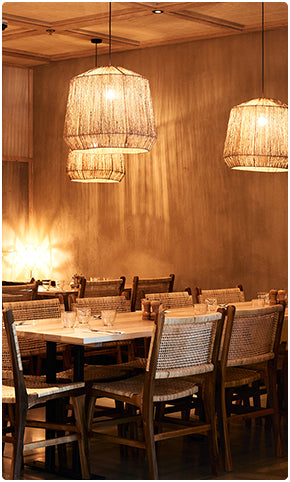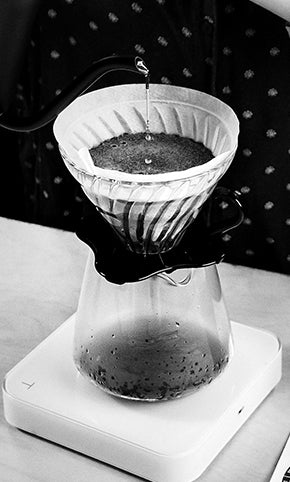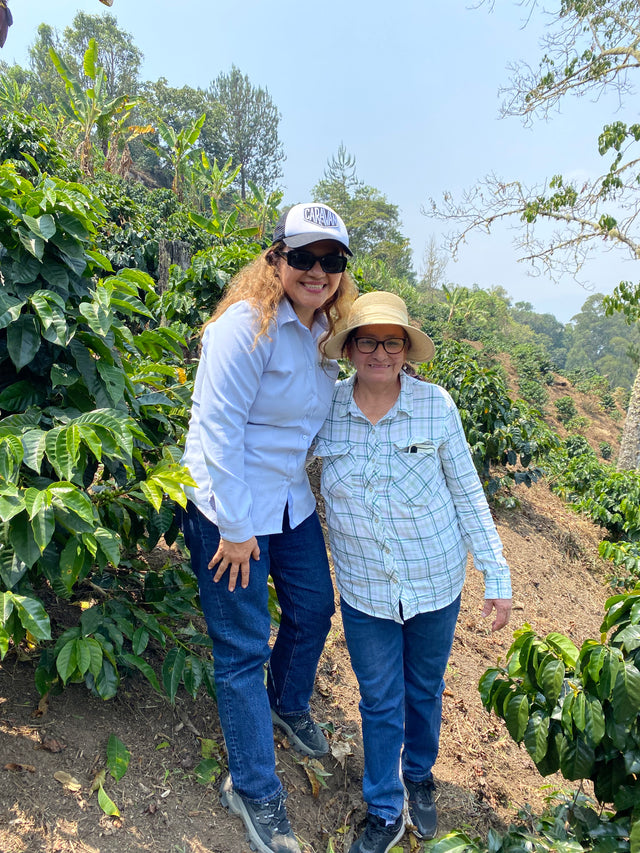Santiago Londono
Want to recreate the Caravan experience at home? Check out our recipe book, Caravan: Dining All Day.
Santiago Londono
-
Region
Valle Del Cauca
-
Varietal
Yellow Bourbon
-
Elevation
1610 MASL
-
Farm/ Producer
Hacienda Mallorca
-
Process
Natural
Hacienda Mallorca is located high up in the Valle Del Cauca (“Cauca’s Valley”) region of Columbia – a stunningly beautiful region in the south-west of the country that is also its most fertile. A lush valley cut through the central and western ranges of the Andean mountains and hosting the eponymous Cauca river at its base; the land is ecologically diverse, green and resplendent. It’s safe to say that Valle Del Cauca is a powerhouse of exceptional Columbian coffee.
Santiago Londoño is himself a 4th generation farmer, and the years of experience the Londoño family have accumulated since his great-grandfather planted their first Typica trees in 1932 is readily apparent. The farm is rainforest alliance certified and there is a deep focus on environmental sustainability and progressive agronomic techniques, including keeping large sections of the farms dedicated to conservation forests with clean natural springs – kept clean by the filtration of all waste-water generated through the industrial processes required in running a large 51 hectare farm.
The generations of experience in the Londoño family don’t only extend to agronomic techniques – the farm is also internationally known for its wide number of coffee varieties grown, including Geisha, Wush Wush, Bourbon (Pink, Red and Yellow), Caturra, Castillo, as well as the Typica that has been grown on the farm since its inception. Santiago is always on the look out for new varieties to experiment with in his variety garden, and we look forward to trying new nano-lots as these experiments bear fruit, quite literally.
To produce this stunning natural lot, the yellow bourbon cherries were selectively picked by hand at peak ripeness. Taking the cherries back to the processing station, the lot was again sorted to remove any rejects or foreign material collected during the picking process. Taking the now impeccably ripe post-selection cherries, they are loaded into mechanical silos set to a precise 33°C, and are dried for 6 hours and 15 minutes exactly before being switched off and allowed to passively cool.
The following day at 7am, the silo is switched on again to 40c for a further 11 hours, and after this point the coffee is allowed to passively dry in the silo for 3 days. On the 6th and 7th day of drying, the silo is turned on for short periods before humidity checks are conducted – allowing an incredible amount of precision in the final stages of the drying process. On the 8th and final day of drying since the cherries were picked, the silo is turned on at 9am and the humidity is constantly monitored till it reaches a final level of 11.3% - perfectly processed, incredibly sweet without the “funk” flavour that often mars sun-dried natural coffees. This coffee is a superb showcase of Santiago’s innovative use of a precise, scientifically driven approach towards processing coffee.
BREWING GUIDE
The body of this coffee is incredibly thick and syrupy, which we recommend to further emphasise with an AeroPress. Brewing inverted, grind 23g of coffee fine and bring a kettle with soft fresh or filtered water to 96°C. Rinse the filter cap, preheat the aeropress and discard the rinse water. Place the AeroPress on the scales, add the coffee and 200g of water before stirring vigorously for 30s. At 1:20, place the cap on the AeroPress and carefully flip the brewer onto your decanter before plunging slowly, stopped at or just before the first hiss. To the final brew, dilute with a further 50g of water or to taste.




